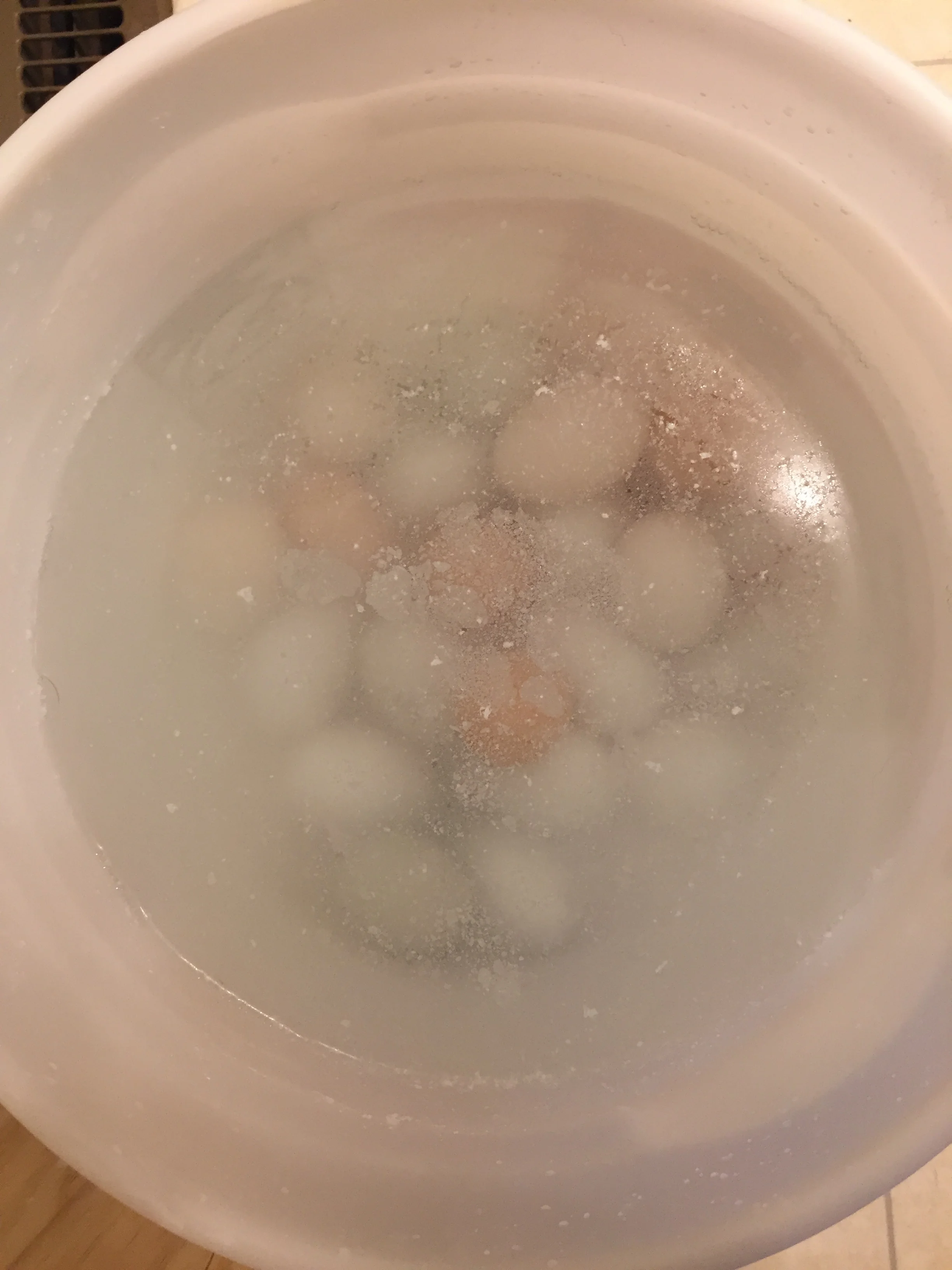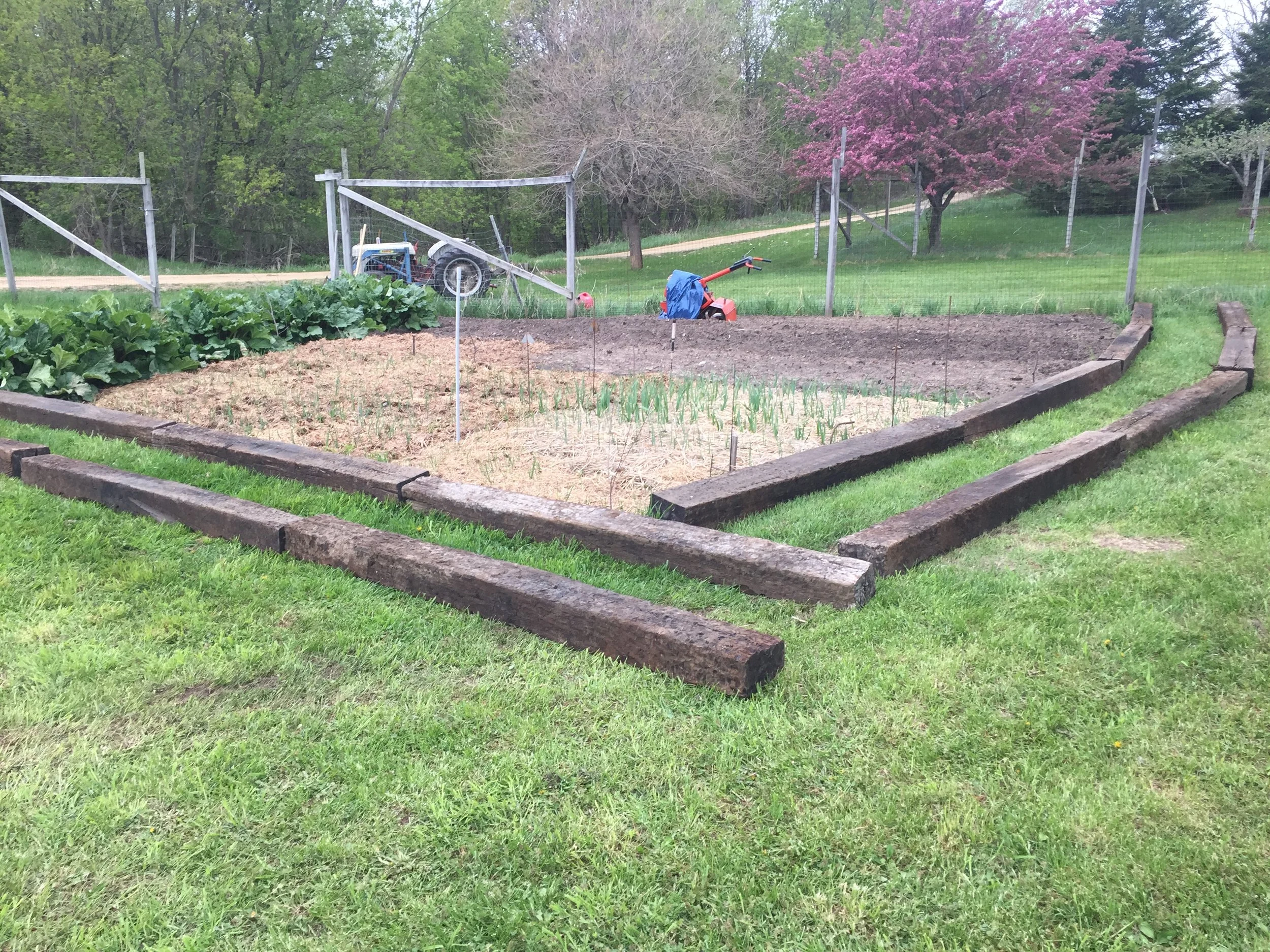Energy journal: perspectives on work and beauty
Springtime means we have eggs again.
We can get up to 18 eggs a day from our 21 duck hens. The chickens are down to 2-3 eggs per 19 hens. Time to make chicken sausage.
We tried saving duck eggs in the basement without refrigeration, but had an unacceptable spoilage rate. Ducks are messy creatures; unclean eggs don’t save well. Refrigeration helps to preserve eggs by slowing bacterial growth. It also requires electricity. Melissa, a friend of ours, sent us a link on how to preserve eggs without electricity, a method called “water glassing.”
One ounce of slaked lime to one quart of water. Use only clean, unwashed eggs.
We are trying it with the 5-6 clean duck eggs we get every day and will see how they are in November, when our egg production slows down. Michael noted that we are substituting one form of energy (electricity for refrigeration) for another (the energy it takes to heat oyster shell, bone, or limestone and then rehydrate the ashes to make slaked lime), in order to take energy away from bacteria, thereby preserving it for our own consumption. I haven’t done an efficiency rating, so it’s difficult to say which method is “better.”
Every day Michael and I engage in some form of exercise, be it strength training or walking Zeke. We also work physically hard at gardening, bird care, construction, and all the other daily living that goes on around here. The idea is that if you expend the energy in exercising, you train muscles to work more efficiently when you need them for farm work and keep yourself from getting hurt. This is true, up to a point.
After helping move about 6 broken RR ties out of the way and loading 3 more into the trailer by hand, I started seeing stars and we had to call in the guy with the forklift!
I have a certain appreciation for the amount of energy machinery substitutes for hand labor. Michael was able to unload and place all the RR ties using the tractor and a logging chain.
1949 Ford. It takes a lot of care, but is better at moving heavy things than I am!
The outline of future raised garden beds.
The new garden beds is another effort to substitute one form of energy (our digging up and beating back the quack grass and Creeping Charlie every year) for another (having a physical barrier between the quack grass and our garden). We will lay down black plastic to kill the grass that is there before finally placing the ties. We may plant rhubarb around the raised beds as another barrier. We will see how it works. We are expending a huge amount of energy to deprive weeds of nutrients we put into the garden (we hauled about 8 trailer loads of compost this spring) so we can grow vegetables instead.
We constantly use energy to alter our environment to suit our needs and desires. The energy it takes to post this blog, making information available to you, dear readers, is mind boggling. Here is to appreciating how we spend energy every day, and paying attention to how to do so elegantly, which is to say both effectively and efficiently. Michael reminds me this is Socrates’ definition of “beauty.” In that sense, may we all have a beautiful day.




